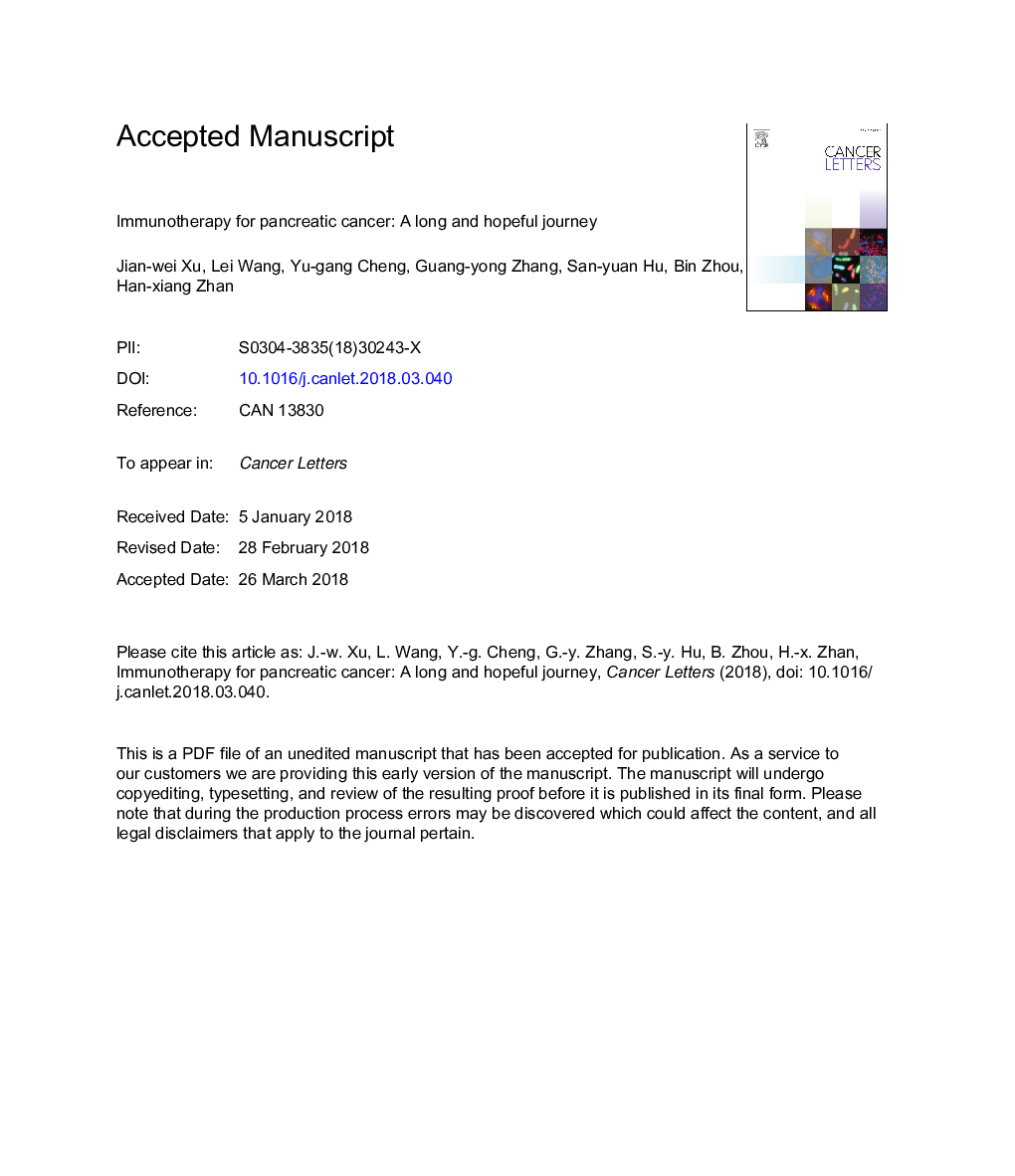| Article ID | Journal | Published Year | Pages | File Type |
|---|---|---|---|---|
| 8434444 | Cancer Letters | 2018 | 42 Pages |
Abstract
Multiple therapeutic strategies have been developed to treat pancreatic cancer. However, the outcomes of these approaches are disappointing. Due to deeper understandings of the pivotal roles of the immune system in pancreatic cancer tumorigenesis and progression, novel therapeutic strategies based on immune cells and the tumor microenvironment are being investigated. Some of these approaches, such as checkpoint inhibitors, chimeric antigen receptor T-cell therapy, and BiTE antibodies, have achieved exciting outcomes in preclinical and clinical trials. The current review describes the roles of immune cells and the immunosuppressive microenvironment in the development of pancreatic cancer, as well as the preclinical and clinical outcomes and benefits of recent immunotherapeutic approaches, which may help us further disclose the mechanisms of pancreatic cancer progression and the dialectical views of feasibility and effectiveness of immunotherapy in treatment of pancreatic cancer.
Related Topics
Life Sciences
Biochemistry, Genetics and Molecular Biology
Cancer Research
Authors
Jian-wei Xu, Lei Wang, Yu-gang Cheng, Guang-yong Zhang, San-yuan Hu, Bin Zhou, Han-xiang Zhan,
